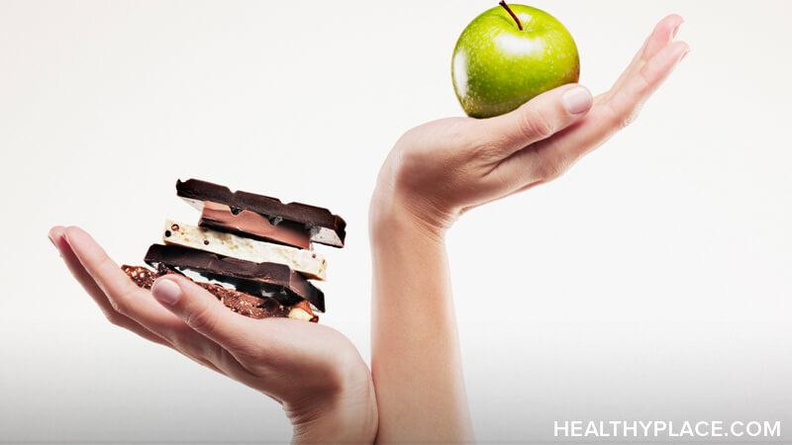Food Isn't Good or Bad and What You Eat Doesn't Define You

Food is often out into two categories, good and bad, but food is not "good" or "bad." Having these judgmental thoughts around food leads us to believe we are either "good" or "bad" for eating certain foods. This disordered eating pattern of thought leads us deeper into our disorders. I have been working a lot lately on seeing food as a neutral party which does not have a "good" or "bad" label attached. Here I share the importance of not judging food as good or bad for successful eating disorder recovery.
Trouble with Labeling Food as 'Good' Or 'Bad'
When food is given a value or judgment, we begin to feel like we are that value for consuming it. We view kale as good and ice cream as bad which means if I eat kale I am a worthy person but if I eat ice cream I am a failure. Doesn't this sound silly when laid out that way? As silly as it may be, I, and many others, struggle with this pattern of thought.
Throughout my recovery journey, I am learning that I should never place my worth on what food I am eating.
Learning to See Food as Neutral
Learning to see food as neutral translates to food not be rated or placed in boxes in our minds; it means food has no charge, whether it be positive or negative, food merely exists.
Seeing food as neither good nor bad takes tons of practice but it is absolutely possible to obtain. Each time your eating disorder makes you believe the food you are about to eat is "bad," stop for a moment, breathe, and re-frame.
Ask yourself questions such as:
- Why am I eating this food?
- Why should I deprive myself of the food my body is asking for?
- Are there any emotions I am experiencing that are causing me to base my worth on what I am eating?
Questions such as these can help you gain back control from your eating disordered mind. Remember, if we listen to the cues and desires of our body we are a lot less likely to engage in binging behavior.
When food no longer contains such a large charge to it and can be seen simply as the nourishment our body needs, you will feel even more freedom from your eating disorder.
Good luck. Breathe. You are enough no matter what you choose to eat.
APA Reference
Bialka, G.
(2017, November 26). Food Isn't Good or Bad and What You Eat Doesn't Define You, HealthyPlace. Retrieved
on 2026, March 4 from https://www.healthyplace.com/blogs/bingeeatingrecovery/2017/11/the-importance-of-making-food-neutral-for-binge-eating-recovery
Author: Grace Bialka
[…] cannot be measured by asking the question, “Did you eat a salad or cheeseburger for lunch?” What you eat doesn’t define you. Foods should not be forced into categories any more than humans should. In order to […]
I think this is a fantastic read! Here's the clincher - "When food is given a value or judgment we then begin to feel like we are that value for consuming it." I love how you follow it up by pointing out the silliness (it really does sound so silly when you put it that way). I think your questions are great. I feel like this read is wonderful year-round but particularly helping in the holiday season when posts are labeling "bad" foods left and right. Kind of takes the joy out of holiday treats! This is a smart post.